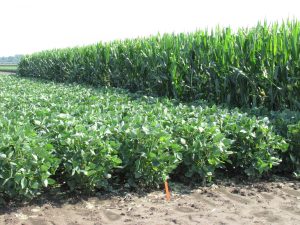Ames, Iowa – The American Families Plan, or AFP, proposed by the Biden administration in April, would provide new social programs to millions of U.S. households. To cover the $1.8 trillion benefits package, the Administration has proposed significant tax changes.
That from the Iowa State University Center For Agriculture and Rural Development.
Specifically, they tell us the AFP proposes increasing the top marginal tax rate for ordinary income, taxing some capital gain at ordinary income tax rates, subjecting more income to the 3.8% Medicare tax, and taxing unrealized capital gain at death or upon gift. These changes would mean that some owners of property that has increased in value would pay tax at a rate as high as 43.4% when they sell the property or when they transfer it at death or by gift.
According to a new Iowa State University study, some of Iowa’s farmland owners could face a substantial increase in taxes to pay for the proposed plan. Kristine Tidgren, director of Iowa State’s Center for Agricultural Law and Taxation says that because of the proposed increase in rates, they estimate that, on average, a full-time farmer owning 358 acres of farmland would see tax liability from a lifetime sale increase from just over $475,000 to over $860,000, an 81% increase, or from 14.5% to 26% of fair market value.
Tidgren authored the study with Wendong Zhang, an associate professor of economics at Iowa State’s Center for Agricultural and Rural Development. Zhang said that their study looked at 80% of Iowa’s farmland owners, including those that own land as sole owners, joint tenants, tenants in common, and through a revocable living trust. He said that they did not study other owners that own farmland in corporations, partnerships, life estates, or irrevocable trusts that could face new tax liability as well.
Zhang says that among full-time farmers with any ownership interest in a whole farm of 200 acres or more, they estimate that 62% of owners and 79% of acres would be impacted by the AFP tax at death or gift, even with a $1 million exclusion. That number jumps to 99% of owners and 98.2% of acres when the whole farm size reaches 500 acres or more. He says these estimates are based solely upon the owner’s interest in farmland.
The authors said that the impact of the AFP depends upon farm size and appreciation. In that way, a small farm that has increased substantially in value since the owner acquired it may be subject to tax while a large farm that was recently inherited would not face the new tax. “Identical farms across the road from each other would have completely different outcomes—one owner might owe $1 million in tax at death, and the other might owe none,” Tidgren said.
For now, the authors said, the AFP is only a proposal, and no current laws have been changed.











